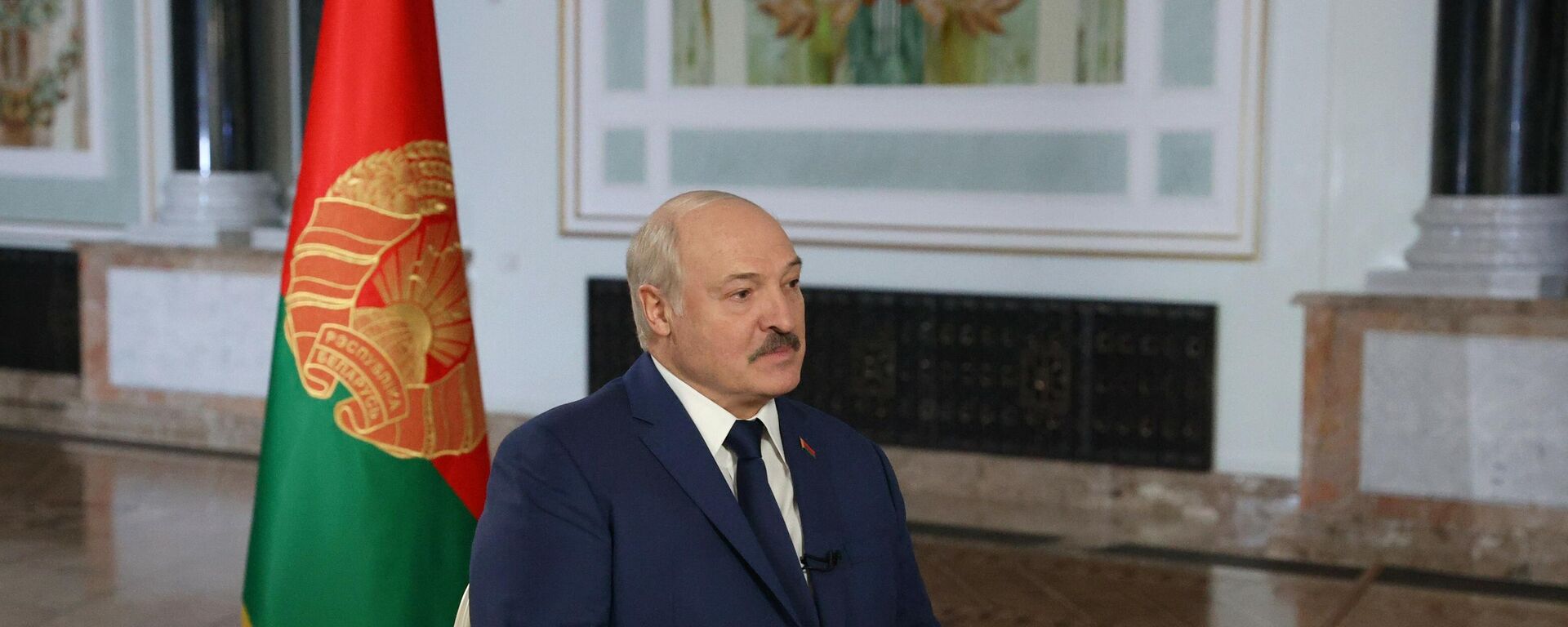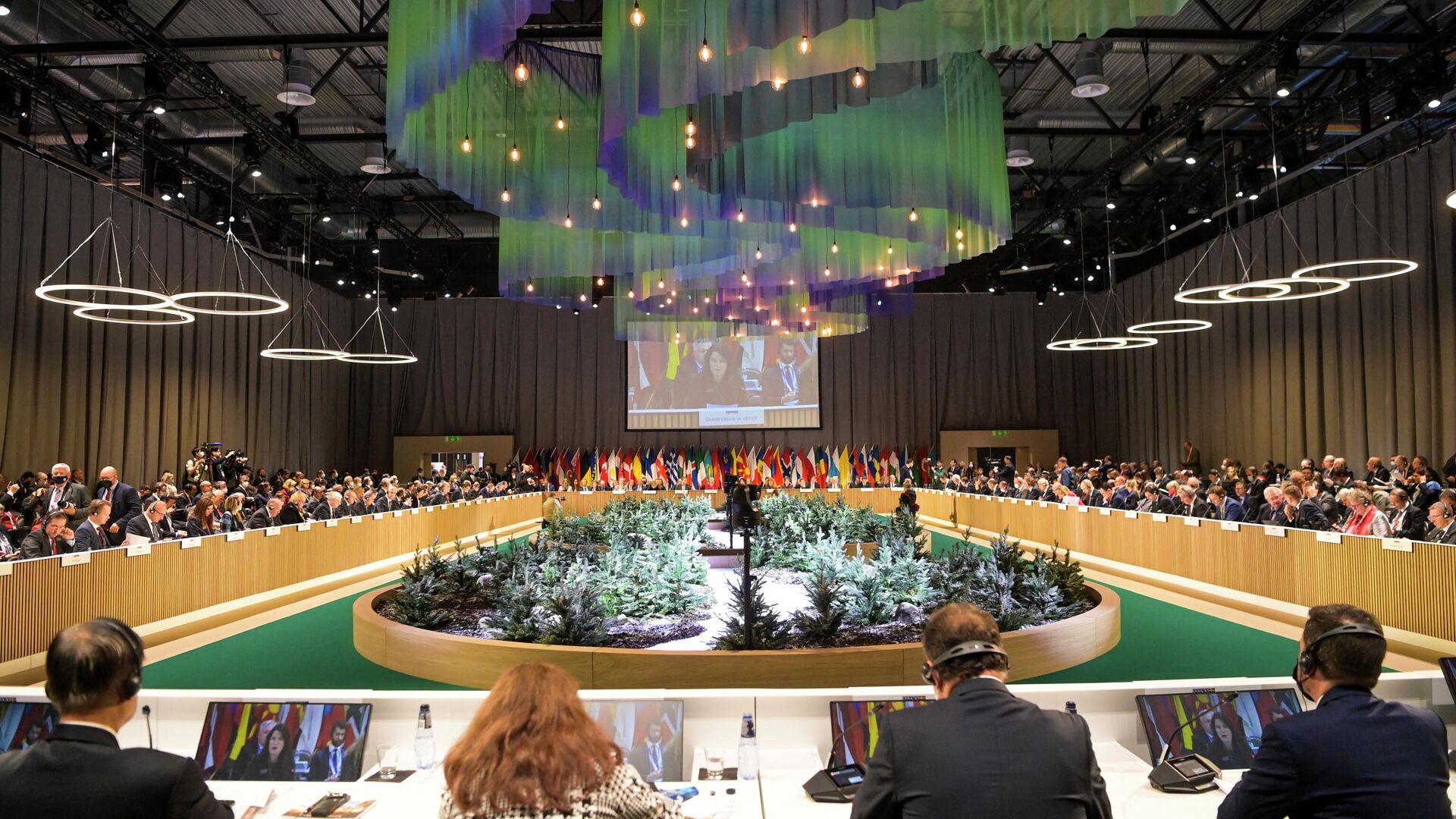https://sputnikglobe.com/20211202/osce-unable-to-fix-political-and-diplomatic-mess-in-balkans-former-ussr-says-military-observer-1091192833.html
OSCE 'Unable to Fix Political and Diplomatic Mess' in Balkans, Former USSR, Says Military Observer
OSCE 'Unable to Fix Political and Diplomatic Mess' in Balkans, Former USSR, Says Military Observer
Sputnik International
As Sweden is hosting the 28th Ministerial Council of the Organisation for Security and Co-operation in Europe (OSCE) in Stockholm, some observers have... 02.12.2021, Sputnik International
2021-12-02T09:44+0000
2021-12-02T09:44+0000
2021-12-02T09:50+0000
osce
balkans
ussr
https://cdn1.img.sputnikglobe.com/img/07e5/0c/02/1091194877_0:185:3072:1913_1920x0_80_0_0_4dbec732f0ea089aac5a6716462312d8.jpg
According to Dr.Marco Marsili, who is a research fellow at the Institute for Political Studies at the Catholic University of Portugal and an associate fellow at the Centre for Strategic Research and Analysis, one of the biggest problems for the OSCE is its inability to go from broad declarations to concrete, legally binding decisions.Sputnik: What are the key challenges that the OSCE is facing right now, what are the organisation’s main goals and what are the regions where it is most active?Marco Marsili: In my opinion, the OSCE has to go further with the current capabilities that the organisation has. There are many challenges that so far the OSCE was not able to fix. Since the OSCE Troika was established in 1992 - this format that comprises the chairman office, and the previous and the incoming chairman office, was established by the Helsinki Summit, - this format, which should be useful for solving or fixing the major international disputes, territorial disputes and conflicts within the OSCE area, has proven to be unsuccessful. I’m talking about the “5+2” talks established in 2007 to solve the Transnistrian issue and the Geneva international discussions established in 2008, which are co-chaired by the UN, the EU and Russia, to try to fix the Georgian war and the question of the breakaway republics of Abkhazia and South Ossetia, and finally, the Trilateral Group on Ukraine, established in 2014, that has the purpose to settle the conflict in Donbass. I think that, so far, the effort of the OSCE to solve these questions - the main issues - and to fix the political and diplomatic mess in the Balkan area and in the former Soviet republics, has proven to be unsuccessful and the organisation was not able to overcome these stalemates.Sputnik: Some observers say that it’s been a “bumpy ride” for Sweden at the helm of the OSCE in 2021 and that there is some degree of paralysis in the decision-making process within the organisation. Would you agree with such statements? Were there any breakthroughs during Sweden’s chairmanship?Marco Marsili: It’s common that summits end up with a consensus declaration. What is difficult is that when you give up reaching a majority decision, and you give up to this principle, you bind yourself by the principle of a shared common statement. This way, of course, you open up for declarations that are so broad, that they do not provide any specific means to address questions, to fix problems. These declarations are so broad, mainly because they are declarations of principles, but they do not contain any legal instruments. So far, these summits have proven to be unsuccessful at the end of the day and they do not provide you with legal means, that someone has to put in force. So, in the end, these summits are a big waste of time - a big effort for nothing.Sputnik: Poland will lead the OSCE next year. Do you think Warsaw will use this stage to push forward its vision of the situation at the border with Belarus?Marco Marsili: My opinion is that it will be “business as usual”. This is being called “hybrid warfare” in the wrong way by the media. It hasn’t been termed as an act of “warfare” or “war” by any diplomats or senior figures, or by any government. State officials and representatives of major international organisations refer to this situation at the border between Belarus and Poland as a “hybrid attack” or a “hybrid operation”, and so on. But nobody referred officially to this situation as “hybrid warfare” – that’s something different because “warfare” ceased to exist after the Second World War, and became illegal under the UN Charter, and it should be referred to as an “armed conflict”, that is the official definition according to the Geneva Conventions. So, as there are no armed troops, no military at the border, there is no war or warfare. It's “business as usual”. And hybrid operations is simply the employment of different tools, tactics, techniques that include diplomatic and economic sanctions, propaganda and information operations, et cetera. There's nothing to be worried about.In my opinion, nobody is “masterminding” anything. The Russian Federation, like it happened with cyber-attacks in the past, has been accused of being behind the situation at the border between Belarus and Poland. But it’s “allegedly accused”. Like with the cyber-attacks against multiple countries such as the Baltic states or the United States - nobody was able so far to prove it. And so, these are all just allegations. And I just think that the situation just warmed up and things simply happened. There isn't any mastermind behind it. There isn't any plan to destabilise Poland, either by the Russian Federation or by Belarus.
https://sputnikglobe.com/20211202/lukashenko-speaks-on-migrant-crisis-ukraine-and-explains-why-belarus-needs-s-400s-1091177480.html
balkans
Sputnik International
feedback@sputniknews.com
+74956456601
MIA „Rossiya Segodnya“
2021
Denis Bolotsky
https://cdn1.img.sputnikglobe.com/img/07e5/06/0b/1083128270_0:0:961:960_100x100_80_0_0_8cd81dafcbaac1c176c25141f8af1d2a.jpg
Denis Bolotsky
https://cdn1.img.sputnikglobe.com/img/07e5/06/0b/1083128270_0:0:961:960_100x100_80_0_0_8cd81dafcbaac1c176c25141f8af1d2a.jpg
News
en_EN
Sputnik International
feedback@sputniknews.com
+74956456601
MIA „Rossiya Segodnya“
Sputnik International
feedback@sputniknews.com
+74956456601
MIA „Rossiya Segodnya“
Denis Bolotsky
https://cdn1.img.sputnikglobe.com/img/07e5/06/0b/1083128270_0:0:961:960_100x100_80_0_0_8cd81dafcbaac1c176c25141f8af1d2a.jpg
osce, balkans, ussr
OSCE 'Unable to Fix Political and Diplomatic Mess' in Balkans, Former USSR, Says Military Observer
09:44 GMT 02.12.2021 (Updated: 09:50 GMT 02.12.2021) As Sweden is hosting the 28th Ministerial Council of the Organisation for Security and Co-operation in Europe (OSCE) in Stockholm, some observers have expressed scepticism over the organisation’s ability to solve serious security crises.
According to Dr.Marco Marsili, who is a research fellow at the Institute for Political Studies at the Catholic University of Portugal and an associate fellow at the Centre for Strategic Research and Analysis, one of the biggest problems for the OSCE is its inability to go from broad declarations to concrete, legally binding decisions.
Sputnik: What are the key challenges that the OSCE is facing right now, what are the organisation’s main goals and what are the regions where it is most active?
Marco Marsili: In my opinion, the OSCE has to go further with the current capabilities that the organisation has. There are many challenges that so far the OSCE was not able to fix. Since the OSCE Troika was
established in 1992 - this format that comprises the chairman office, and the previous and the incoming chairman office, was established by the Helsinki Summit, - this format, which should be useful for solving or fixing the major international disputes, territorial disputes and conflicts within the OSCE area, has proven to be unsuccessful. I’m talking about the “5+2” talks established in 2007 to solve the Transnistrian issue and the Geneva international discussions established in 2008, which are co-chaired by the UN, the EU and Russia, to try to fix the Georgian war and the question of the breakaway republics of Abkhazia and South Ossetia, and finally, the Trilateral Group on Ukraine, established in 2014, that has the purpose to settle the conflict in Donbass. I think that, so far, the effort of the OSCE to solve these questions - the main issues - and to fix the political and diplomatic mess in the Balkan area and in the former Soviet republics, has proven to be unsuccessful and the organisation was not able to overcome these stalemates.
Sputnik: Some observers say that it’s been a “bumpy ride” for Sweden at the helm of the OSCE in 2021 and that there is some degree of paralysis in the decision-making process within the organisation. Would you agree with such statements? Were there any breakthroughs during Sweden’s chairmanship?
Marco Marsili: It’s common that summits end up with a consensus declaration. What is difficult is that when you give up reaching a majority decision, and you give up to this principle, you bind yourself by the principle of a shared common statement. This way, of course, you open up for declarations that are so broad, that they do not provide any specific means to address questions, to fix problems. These declarations are so broad, mainly because they are declarations of principles, but they do not contain any legal instruments. So far, these summits have proven to be unsuccessful at the end of the day and they do not provide you with legal means, that someone has to put in force. So, in the end, these summits are a big waste of time - a big effort for nothing.

2 December 2021, 02:15 GMT
Sputnik: Poland will lead the OSCE next year. Do you think Warsaw will use this stage to push forward its vision of the situation at the border with Belarus?
Marco Marsili: My opinion is that it will be “business as usual”. This is being called
“hybrid warfare” in the wrong way by the media. It hasn’t been termed as an act of “warfare” or “war” by any diplomats or senior figures, or by any government. State officials and representatives of major international organisations refer to this situation at the border between Belarus and Poland as a “hybrid attack” or a “hybrid operation”, and so on. But nobody referred officially to this situation as “hybrid warfare” – that’s something different because “warfare” ceased to exist after the Second World War, and became illegal under the UN Charter, and it should be referred to as an “armed conflict”, that is the official definition according to the Geneva Conventions. So, as there are no armed troops, no military at the border, there is no war or warfare. It's “business as usual”. And hybrid operations is simply the employment of different tools, tactics, techniques that include diplomatic and economic sanctions, propaganda and information operations, et cetera. There's nothing to be worried about.
In my opinion, nobody is “masterminding” anything. The Russian Federation, like it happened with cyber-attacks in the past, has been accused of being behind the
situation at the border between Belarus and Poland. But it’s “allegedly accused”. Like with the cyber-attacks against multiple countries such as the Baltic states or the United States - nobody was able so far to prove it. And so, these are all just allegations. And I just think that the situation just warmed up and things simply happened. There isn't any mastermind behind it. There isn't any plan to destabilise Poland, either by the Russian Federation or by Belarus.



